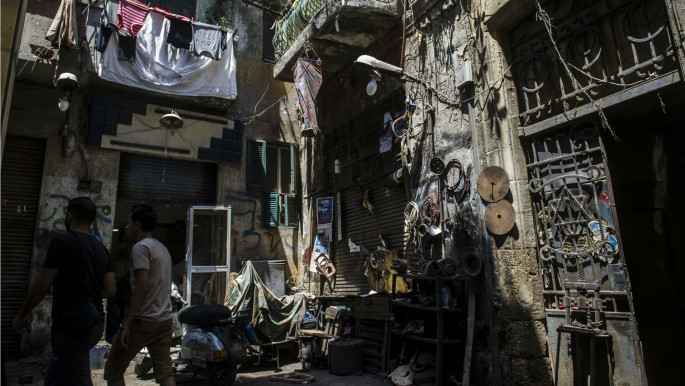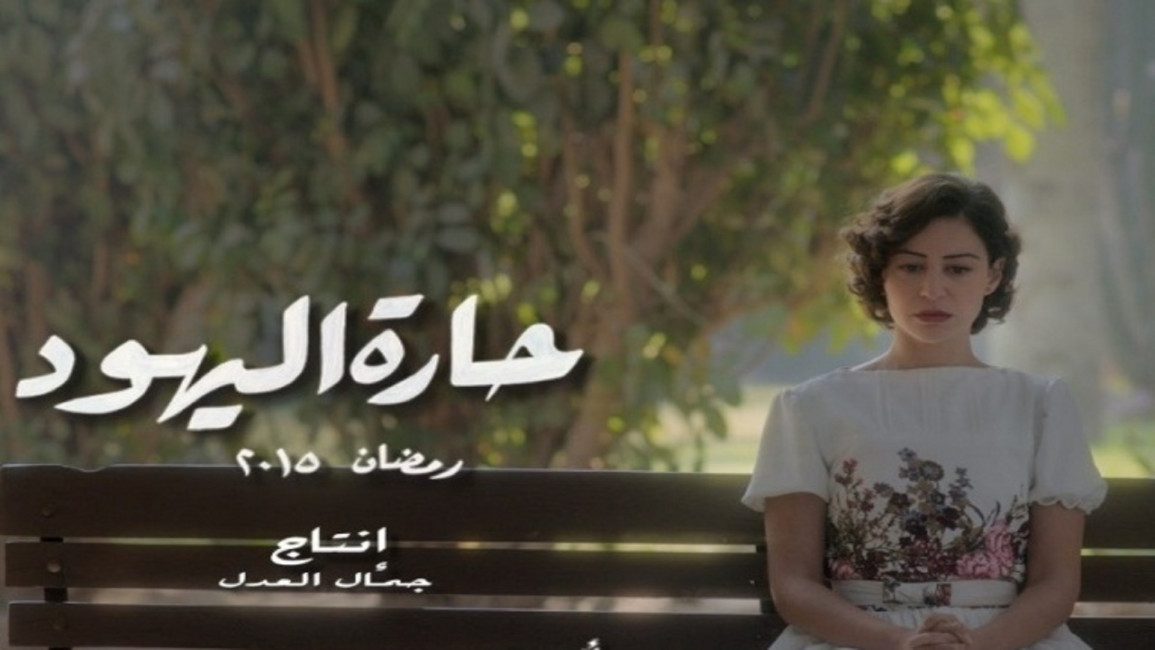Ramadan soap on Egypt's Jews receives mixed reviews
"The Jewish Quarter" shows life inside Cairo's Haret al-Yahoud district during the 1948 Nakba, depicting an almost idyllic portrait of a society where Muslims, Christians and Jews lived side by side.
|
The communist Jews did not play with the youth’s minds to turn them into Zionists - Magda Haroun |
He said he wanted "to break the taboo and prejudice" by presenting "normal Jewish characters," in contrast to the derogatory representation of Jews in recent decades in movies and television shows.
The series initially won praise from Israel whose embassy in Cairo said it was pleased to see "for the first time, Jews represented according to their true nature, as human beings".
The show is openly anti-Zionist, however, and the Israeli embassy later criticised what it described as a "negative turning point" in the series and "attacks against the state of Israel".
The soap is being aired during the holy Muslim fasting month of Ramadan, considered television peak season in Egypt.
More than 80,000 Jews lived in Egypt before the creation of the state of Israel in 1948 marked the start of an exodus.
With the many wars waged between Egypt and the Jewish state and the anti-Semitism they generated, Jews were either expelled or pressured to leave the Arab world's most populous country.
A different era
 |
|
| The Star of David on a door in Cairo's Jewish quarter [AFP] |
The plot revolves around the love story of Aly, a Muslim officer in the Egyptian army fighting in the 1948 war, and his Jewish neighbour Leila, an elegant francophone saleswoman working in one of Cairo's upscale department stores, which were owned by influential Jewish businessmen.
It stars Jordanian actor Eyad Nassar and Egyptian actress Menna Shalabi.
"We discover Egypt at a different time," said Rana Khalil, 23, an enthusiastic viewer of the series, sitting in a posh Cairo cafe.
"The characters are elegant and well-dressed. I am also learning a lot about Judaism," she added.
The Islamist movement has been the target of a sweeping crackdown since Abdel Fattah al-Sisi, the army chief who has since become president, ousted Islamist president Mohamed Morsi in 2013.
One scene shows Brotherhood founder Hassan al-Banna encouraging supporters to stage attacks, saying: "The war is not only in Palestine. Jihad here is no less important than it is there".
Sisi has pursued closer ties with Israel than Morsi, who had promised a tougher stance towards its neighbour without calling into question peace agreements.
On Sunday, Sisi appointed a new ambassador to Israel, the first since 2012 in a shakeup at more than a dozen embassies.
Fact or fiction?
The television series has however faced criticism from Egyptian Jews.
Magda Haroun, the chief of Egypt's tiny remaining Jewish community, pointed out historical errors in a Facebook post.
She said, “The dresses and skirts may have been short but they weren’t as short as they are seen in the series,”
“The communist Jews did not play with the youth’s minds to turn them into Zionists,” she added.
Albert Arie, 85, was also disappointed.
The Jewish former communist activist, who converted to Islam to marry his Muslim wife, had taken part in a campaign against cholera in the Jewish quarter back in 1947.
He explained that unlike the characters in the series, residents of the district "were among the poorest Jews in the world".
"I asked myself: 'What is this crap?'" Arie said, speaking in French, and suggested that the show would have been more credible if it had been shot in one of the Cairo neighbourhoods inhabited by middle class Jews.
"The set makes no sense. It shows rich houses while Haret al-Yahud was a jumble of alleys, with old houses and houses that collapsed," recalled Arie, who was jailed for 11 years for his activism.
Despite the inaccuracies, however, he acknowledged the fact that the series showed "a positive image of the Jew, who is no longer a bastard".
Jews on Egyptian television have usually been relegated to stingy, crafty characters with nasal voices that try to outwit the Mukhabarat but eventually end up getting nabbed or malevolent politicians.



